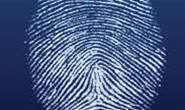Australian citizens will only be able to avoid information being recorded against their healthcare identifier number by using medical services anonymously or giving a false name and paying full price for medical services, according to a legal expert.

University of Melbourne law professor Loane Skene - who supports the healthcare identifier as a way to allow research organisations to access medical information without consent - raised the prospect during a speech at the University of Monday night.
The Healthcare Identifier Act came into effect on July 1. It assigns Australian citizens with a unique number to link all medical information contained in disparate databases.
The number means that a name or other identifying information is not visible to whoever accesses the information, Ms Skene said.
Information is automatically recorded against the number whenever a Medicare service is used. And while people cannot opt-out of the scheme, Skene said that citizens concerned for their privacy could bypass the system by giving a false name.
"When I go to the doctor next time and make my Medicare claim, the information will be capable of being seen with the other information I have," Ms Skene said.
"[If a patient doesn't] want certain information used, for example a [sexually transmitted disease], they could give a different name, Mary Smith, and then that information will not link to the rest of the health information.
"I could go anonymously or use a pseudonym and the Act envisages you're allowed to do that - but you can't opt out of the identifier."
Such a strategy would come at considerable cost to the patient, who would not be able to hand over a Medicare card with their real name and thus miss out on a Government subsidy for healthcare services.
A spokesman for NEHTA (the National E-Health Transition Authority) told iTnews that the introduction of healthcare identifiers "will not alter the way in which anonymous healthcare services are currently provided.
"Where it is lawful and practical, individuals can seek treatment and services on an anonymous basis," the spokesman said, quoting a Frequently Asked Question on the NEHTA eHealth website. "In these instances, an IHI would not be used by the healthcare service."
Skene also noted that the Act stipulated that healthcare identifier information cannot be used for insurance or employment purposes.
Overall, she is encouraged by the healthcare identifier act, which allows research organisations to access medical information without a person's consent.
"I hope I've made a case for the advantages of allowing people to share medical information in the best interests of patients and also in research," she said. "To do that effectively you need to be sure the person you're looking at is the same person you're looking at in another record.
"The use of it is going to be particularly for providing medical services but there are a number of other services as well, the management, funding, monitoring and evaluation of healthcare, providing indemnity cover for healthcare providers and for research.
"It would help automate routine interactions between care providers, such as referrals, prescriptions, and image processing, and improve access to patient information, save time in provider costs."


_(28).jpg&h=140&w=231&c=1&s=0)
_(23).jpg&h=140&w=231&c=1&s=0)







 iTnews Benchmark Awards 2026
iTnews Benchmark Awards 2026
 iTnews Executive Retreat - Security Leaders Edition
iTnews Executive Retreat - Security Leaders Edition
 iTnews Cloud Covered Breakfast Summit
iTnews Cloud Covered Breakfast Summit
 The 2026 iAwards
The 2026 iAwards












_(1).jpg&h=140&w=231&c=1&s=0)



